The National Magnet Nurse of the Year® Award
ANCC's National Magnet Nurse of the Year awards recognize the outstanding contributions of clinical nurses for innovation,
consultation, leadership, and professional risk taking. Awards are presented in each of the five Magnet® Model components:
- Transformational Leadership
- Structural Empowerment
- Exemplary Professional Practice
- New Knowledge, Innovations & Improvements
- Empirical Outcomes
2016 National Magnet Nurse of the Year Award Winners
Winners of the 2016 National Magnet Nurse of the Year Awards were recognized at the 2016 ANCC National Magnet Conference in Orlando, Florida on Thursday, October 6, 2016.
|
Transformational Leadership Winner
|
|
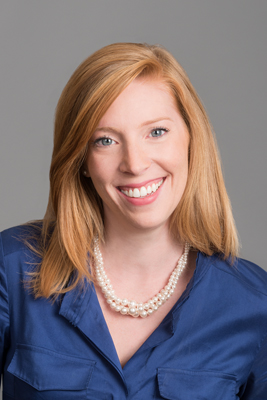
|
Anne C. Boatright, MSN, RN, SANE,
Nebraska Methodist Hospital, Omaha, Nebraska
Through dedication, advocacy and tenacity, Boatright transformed the way care is provided to victims of violence in her community. As the coordinator of the only forensic nurse examiner program in her region, she built a team that provides around-the-clock care to patients. In four years, she grew the Methodist Heidi Wilke Forensic Nurse Examiner Program from 15 nurses to a staff of 30. With specially trained forensic nurses, her organization realized a 230 percent increase in patient volume in three years. Boatright serves on county sexual assault and domestic violence response teams, and she provides education and training to police and fire departments, advocacy agencies, and area hospitals and schools. She serves on Nebraska's human trafficking task force, and works with the Federal Bureau of Investigation on active human trafficking sting operations. |
|
Structural Empowerment Winner
|
|
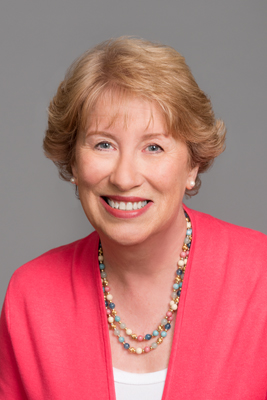
|
Barbara M. Richardson, MSN, RN-BC, CCRN
Southwestern Vermont Medical Center, Bennington, Vermont
Richardson, a champion for transitional care nursing, serves patients in a rural, medically under-served region that encompasses three states. She partners with local primary care providers to identify at-risk patients and helps patients navigate from one care setting to another. Richardson created a support network within the community, establishing partnerships with mental health services, Meals on Wheels, and the Support and Services at Home Program, which provides support to individuals who choose to live independently at home. She collaborates with a community care team that works on decreasing emergency department visits. These efforts have resulted in a 69 percent decrease in hospitalizations and a 26 percent decrease in ED visits for patients enrolled in the program. As a result of its work, the transitional care team was awarded a $200,000 innovation grant from the state of Vermont.
|
|
Exemplary Professional Practice Winner
|
|
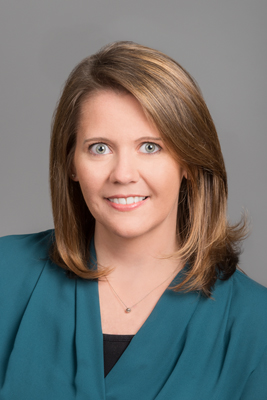
|
Sharon A. Vanairsdale, MS, APRN, ACNS-BC, NP-C, CEN
Emory University Hospital, Atlanta, Georgia
As the program director for Emory's Serious Communicable Diseases Unit, Vanairsdale develops and maintains standard operating procedures to care for patients with a variety of highly infectious pathogens. In 2014, the SCDU cared for America's first patients diagnosed with Ebola. Since then, Vanairsdale has focused on the education and training of health care workers at Emory and hospitals across the nation. She assisted with developing courses on Ebola treatment and preparedness protocols, and successfully trained over 600 clinicians and public health professionals. The success of the training led to the development of the National Ebola Training and Education Center, a collaboration between Emory Medicine, Nebraska Medicine, and New York City Health and Hospitals. As a result, Vanairsdale directed the training of an additional 350 health care professionals. Vanairsdale creates curriculum for the center's free educational offerings for health care facilities throughout the world.
|
|
New Knowledge, Innovations, & Improvements Winner
|
|
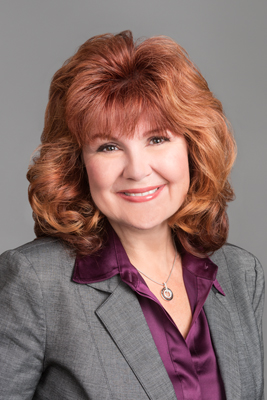
|
Christi D. DeLemos, MSN, CNRN, ACNP-BC
University of California Davis Medical Center, Sacramento, California
DeLemos' contribution to new knowledge and innovation is exemplified by her development of a mobile application designed for nurses who care for patients with stroke, traumatic brain injury and other neurological impairments. The goals of the app are to enhance bedside care through instant access to neuroscience nursing information, and to increase nursing confidence when caring for neurological patients. The mobile app was developed over a one-year period, and was reviewed by an international committee of nurses. Launched in 2015, the free Neuroscience Nurse mobile app has been downloaded by more than 1,700 users in 19 countries. A committed educator, she also produced and directed a 30-minute professional teaching video that has been translated into 10 languages and distributed in eight countries worldwide. |
|
Empirical Outcomes Winner
|
|
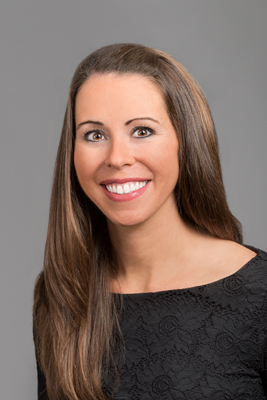
|
Colleen K. McIlvennan, DNP, RN, ANP-BC
University of Colorado Hospital, Aurora, Colorado
McIlvennan cares for critically ill patients with advanced heart failure, heart transplants and mechanical heart pumps called left ventricular assist devices. She generated groundbreaking research encompassing patients' and caregivers' emotional, rational and fundamental beliefs when considering an LVAD. The resulting data was published in three high-impact, peer-reviewed journals targeted at nursing, cardiology and surgical colleagues who implant LVADs. This work led to the development of two innovative decision aids, an eight-page pamphlet and a 26-minute video that are being used by LVAD programs across the U.S. and Canada. These efforts led to a $2 million grant from the Patient-Centered Outcomes Research Institute. McIlvennan's pilot work and testing of the decision aids has led to national recognition from the American Heart Association and the Heart Failure Society of America.
|
The award winners’ presentations at the 2016 ANCC National Magnet Conference.
2016 | 2015 | 2014 | 2013
|
New Knowledge, Innovations, & Improvements Winner
|
|

|
Christi D. DeLemos, MSN, CNRN, ACNP-BC
University of California Davis Medical Center, Sacramento, California
DeLemos' contribution to new knowledge and innovation is exemplified by her development of a mobile application designed for nurses who care for patients with stroke, traumatic brain injury and other neurological impairments. The goals of the app are to enhance bedside care through instant access to neuroscience nursing information, and to increase nursing confidence when caring for neurological patients. The mobile app was developed over a one-year period, and was reviewed by an international committee of nurses. Launched in 2015, the free Neuroscience Nurse mobile app has been downloaded by more than 1,700 users in 19 countries. A committed educator, she also produced and directed a 30-minute professional teaching video that has been translated into 10 languages and distributed in eight countries worldwide. |
|
New Knowledge, Innovations, & Improvements Winner
|
|

|
Christi D. DeLemos, MSN, CNRN, ACNP-BC
University of California Davis Medical Center, Sacramento, California
DeLemos' contribution to new knowledge and innovation is exemplified by her development of a mobile application designed for nurses who care for patients with stroke, traumatic brain injury and other neurological impairments. The goals of the app are to enhance bedside care through instant access to neuroscience nursing information, and to increase nursing confidence when caring for neurological patients. The mobile app was developed over a one-year period, and was reviewed by an international committee of nurses. Launched in 2015, the free Neuroscience Nurse mobile app has been downloaded by more than 1,700 users in 19 countries. A committed educator, she also produced and directed a 30-minute professional teaching video that has been translated into 10 languages and distributed in eight countries worldwide. |
|
New Knowledge, Innovations, & Improvements Winner
|
|

|
Christi D. DeLemos, MSN, CNRN, ACNP-BC
University of California Davis Medical Center, Sacramento, California
DeLemos' contribution to new knowledge and innovation is exemplified by her development of a mobile application designed for nurses who care for patients with stroke, traumatic brain injury and other neurological impairments. The goals of the app are to enhance bedside care through instant access to neuroscience nursing information, and to increase nursing confidence when caring for neurological patients. The mobile app was developed over a one-year period, and was reviewed by an international committee of nurses. Launched in 2015, the free Neuroscience Nurse mobile app has been downloaded by more than 1,700 users in 19 countries. A committed educator, she also produced and directed a 30-minute professional teaching video that has been translated into 10 languages and distributed in eight countries worldwide. |
|
New Knowledge, Innovations, & Improvements Winner
|
|

|
Christi D. DeLemos, MSN, CNRN, ACNP-BC
University of California Davis Medical Center, Sacramento, California
DeLemos' contribution to new knowledge and innovation is exemplified by her development of a mobile application designed for nurses who care for patients with stroke, traumatic brain injury and other neurological impairments. The goals of the app are to enhance bedside care through instant access to neuroscience nursing information, and to increase nursing confidence when caring for neurological patients. The mobile app was developed over a one-year period, and was reviewed by an international committee of nurses. Launched in 2015, the free Neuroscience Nurse mobile app has been downloaded by more than 1,700 users in 19 countries. A committed educator, she also produced and directed a 30-minute professional teaching video that has been translated into 10 languages and distributed in eight countries worldwide. |
|
New Knowledge, Innovations, & Improvements Winner
|
|

|
Christi D. DeLemos, MSN, CNRN, ACNP-BC
University of California Davis Medical Center, Sacramento, California
DeLemos' contribution to new knowledge and innovation is exemplified by her development of a mobile application designed for nurses who care for patients with stroke, traumatic brain injury and other neurological impairments. The goals of the app are to enhance bedside care through instant access to neuroscience nursing information, and to increase nursing confidence when caring for neurological patients. The mobile app was developed over a one-year period, and was reviewed by an international committee of nurses. Launched in 2015, the free Neuroscience Nurse mobile app has been downloaded by more than 1,700 users in 19 countries. A committed educator, she also produced and directed a 30-minute professional teaching video that has been translated into 10 languages and distributed in eight countries worldwide. |
|
New Knowledge, Innovations, & Improvements Winner
|
|

|
Christi D. DeLemos, MSN, CNRN, ACNP-BC
University of California Davis Medical Center, Sacramento, California
DeLemos' contribution to new knowledge and innovation is exemplified by her development of a mobile application designed for nurses who care for patients with stroke, traumatic brain injury and other neurological impairments. The goals of the app are to enhance bedside care through instant access to neuroscience nursing information, and to increase nursing confidence when caring for neurological patients. The mobile app was developed over a one-year period, and was reviewed by an international committee of nurses. Launched in 2015, the free Neuroscience Nurse mobile app has been downloaded by more than 1,700 users in 19 countries. A committed educator, she also produced and directed a 30-minute professional teaching video that has been translated into 10 languages and distributed in eight countries worldwide. |
|
New Knowledge, Innovations, & Improvements Winner
|
|

|
Christi D. DeLemos, MSN, CNRN, ACNP-BC
University of California Davis Medical Center, Sacramento, California
DeLemos' contribution to new knowledge and innovation is exemplified by her development of a mobile application designed for nurses who care for patients with stroke, traumatic brain injury and other neurological impairments. The goals of the app are to enhance bedside care through instant access to neuroscience nursing information, and to increase nursing confidence when caring for neurological patients. The mobile app was developed over a one-year period, and was reviewed by an international committee of nurses. Launched in 2015, the free Neuroscience Nurse mobile app has been downloaded by more than 1,700 users in 19 countries. A committed educator, she also produced and directed a 30-minute professional teaching video that has been translated into 10 languages and distributed in eight countries worldwide. |
|
New Knowledge, Innovations, & Improvements Winner
|
|

|
Christi D. DeLemos, MSN, CNRN, ACNP-BC
University of California Davis Medical Center, Sacramento, California
DeLemos' contribution to new knowledge and innovation is exemplified by her development of a mobile application designed for nurses who care for patients with stroke, traumatic brain injury and other neurological impairments. The goals of the app are to enhance bedside care through instant access to neuroscience nursing information, and to increase nursing confidence when caring for neurological patients. The mobile app was developed over a one-year period, and was reviewed by an international committee of nurses. Launched in 2015, the free Neuroscience Nurse mobile app has been downloaded by more than 1,700 users in 19 countries. A committed educator, she also produced and directed a 30-minute professional teaching video that has been translated into 10 languages and distributed in eight countries worldwide. |
|
New Knowledge, Innovations, & Improvements Winner
|
|

|
Christi D. DeLemos, MSN, CNRN, ACNP-BC
University of California Davis Medical Center, Sacramento, California
DeLemos' contribution to new knowledge and innovation is exemplified by her development of a mobile application designed for nurses who care for patients with stroke, traumatic brain injury and other neurological impairments. The goals of the app are to enhance bedside care through instant access to neuroscience nursing information, and to increase nursing confidence when caring for neurological patients. The mobile app was developed over a one-year period, and was reviewed by an international committee of nurses. Launched in 2015, the free Neuroscience Nurse mobile app has been downloaded by more than 1,700 users in 19 countries. A committed educator, she also produced and directed a 30-minute professional teaching video that has been translated into 10 languages and distributed in eight countries worldwide. |
|
Empirical Outcomes Winner
|
|

|
Colleen K. McIlvennan, DNP, RN, ANP-BC
University of Colorado Hospital, Aurora, Colorado
McIlvennan cares for critically ill patients with advanced heart failure, heart transplants and mechanical heart pumps called left ventricular assist devices. She generated groundbreaking research encompassing patients' and caregivers' emotional, rational and fundamental beliefs when considering an LVAD. The resulting data was published in three high-impact, peer-reviewed journals targeted at nursing, cardiology and surgical colleagues who implant LVADs. This work led to the development of two innovative decision aids, an eight-page pamphlet and a 26-minute video that are being used by LVAD programs across the U.S. and Canada. These efforts led to a $2 million grant from the Patient-Centered Outcomes Research Institute. McIlvennan's pilot work and testing of the decision aids has led to national recognition from the American Heart Association and the Heart Failure Society of America.
|
The award winners’ presentations at the 2016 ANCC National Magnet Conference.
|
|
Empirical Outcomes Winner
|
|

|
Colleen K. McIlvennan, DNP, RN, ANP-BC
University of Colorado Hospital, Aurora, Colorado
McIlvennan cares for critically ill patients with advanced heart failure, heart transplants and mechanical heart pumps called left ventricular assist devices. She generated groundbreaking research encompassing patients' and caregivers' emotional, rational and fundamental beliefs when considering an LVAD. The resulting data was published in three high-impact, peer-reviewed journals targeted at nursing, cardiology and surgical colleagues who implant LVADs. This work led to the development of two innovative decision aids, an eight-page pamphlet and a 26-minute video that are being used by LVAD programs across the U.S. and Canada. These efforts led to a $2 million grant from the Patient-Centered Outcomes Research Institute. McIlvennan's pilot work and testing of the decision aids has led to national recognition from the American Heart Association and the Heart Failure Society of America.
|
The award winners’ presentations at the 2016 ANCC National Magnet Conference.
|